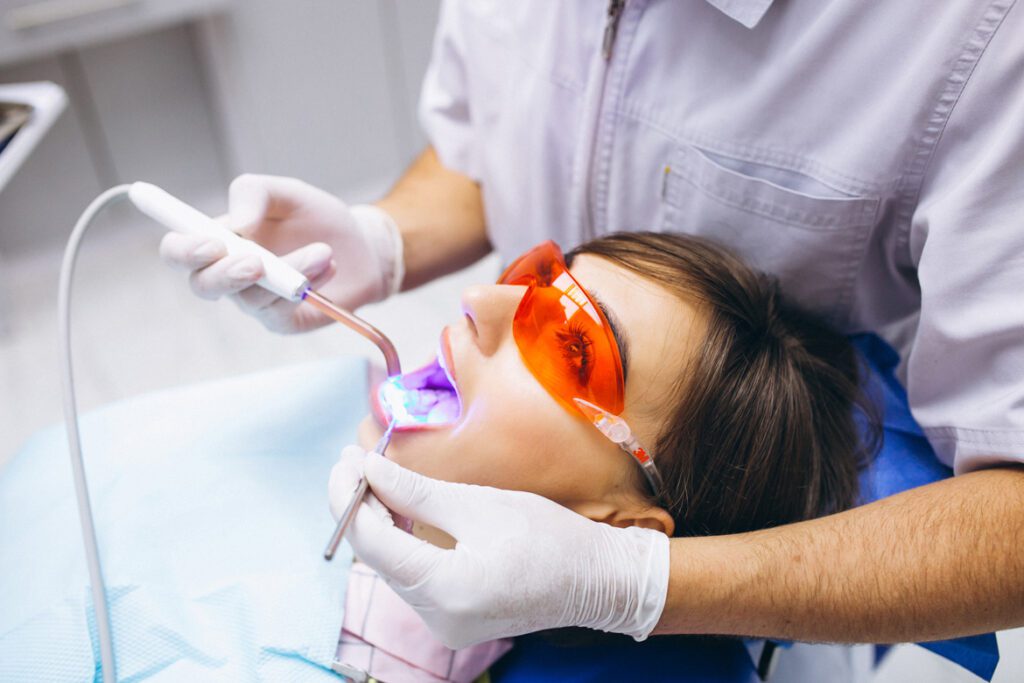Taking care of your oral health is a lifelong journey. Whether you’re looking to maintain a healthy smile or address specific concerns, making informed decisions is key to achieving long-term dental health. In today’s world, information about oral health is more accessible than ever, but it can be overwhelming to know which sources to trust and what actions to take. This blog will guide you through the steps for making educated decisions about your oral health, ensuring that you feel confident and empowered to make choices that benefit your smile.
1. Understand the Importance of Oral Health
Oral health is not just about keeping your teeth white or preventing cavities. It plays a crucial role in your overall well-being. Research has shown that poor oral health can lead to a range of issues, from gum disease and tooth loss to more serious health conditions such as heart disease and diabetes. By maintaining good oral hygiene and making informed choices, you can prevent these issues before they arise.
A healthy mouth is also essential for proper digestion and clear speech. The mouth is the entryway to your digestive system, and oral diseases can interfere with chewing, swallowing, and speaking. So, understanding the importance of oral health is the first step toward making informed decisions for your well-being.
2. Do Your Research
One of the best ways to make informed decisions about your oral health is to educate yourself. There is a wealth of information available online, but it’s important to find reliable and trustworthy sources. Government health websites, accredited dental organizations, and your dentist recommendations are excellent places to start. Reading dental blogs, scientific articles, and watching educational videos can also help you gain a better understanding of common dental procedures, oral hygiene routines, and the latest advancements in the field.
When researching dental treatments or procedures, always ensure the information is backed by scientific evidence. Avoid relying on anecdotal experiences or unverified sources. It’s always a good idea to seek second opinions from multiple trusted sources before making any big decisions about treatments.
3. Consult Your Dentist Regularly
Regular dental visits are crucial in making informed decisions about your oral health. Your dental service Corio can provide professional guidance, assess the health of your teeth and gums, and recommend personalized treatment options based on your needs. During your dental checkups, make sure to ask your dentist questions and express any concerns you may have about your oral health. Dentists are there to help you understand your options, whether you need cosmetic treatments, fillings, braces, or advice on preventive care.
If you’re ever uncertain about a procedure or diagnosis, don’t hesitate to ask your dentist to explain things in detail. They can provide you with pros and cons for different treatment options and help you understand the potential risks and benefits.
4. Know Your Treatment Options
There are a wide variety of dental treatments available today, from basic preventive care to complex procedures. It’s important to fully understand the treatment options available to you, as well as their costs, benefits, and potential risks. Here are a few common dental treatments and what you should know about them:
- Fillings and Crowns: If you have cavities or damaged teeth, fillings or crowns are common treatment options. They help restore the function and appearance of your teeth. Your dentist will explain which material is best suited for your needs, such as composite resin, porcelain, or metal.
- Root Canals: When the pulp inside a tooth becomes infected or inflamed, a root canal may be needed to save the tooth. While this procedure has a reputation for being painful, modern techniques and anesthesia make it more comfortable than ever.
- Orthodontics: Braces or clear aligners can be used to straighten misaligned teeth, improving both the appearance of your smile and the function of your bite. There are various options available, so discuss with your dentist or orthodontist to determine which method works best for your lifestyle and budget.
- Teeth Whitening: Over time, teeth can stain due to food, drinks, and natural aging. Teeth whitening treatments are popular ways to restore brightness. Your dentist can help you choose the safest and most effective whitening option, whether you opt for in-office treatments or at-home kits.
Understanding these options will help you make informed decisions when discussing treatments with your dentist.
5. Consider the Long-Term Effects
When making decisions about your oral health, it’s essential to think about the long-term effects of each option. Some treatments may offer quick results but require additional maintenance down the road, while others might offer a more permanent solution. For example, dental implants are a long-lasting solution for missing teeth, but they may come with a higher initial cost compared to bridges or dentures.
Ask your dentist to discuss the long-term impact of the treatments you are considering. Will they need ongoing maintenance or additional visits to the dentist? Are there lifestyle changes you’ll need to make to ensure the success of the treatment? By considering the long-term effects, you’ll be better equipped to make decisions that align with your needs and preferences.
6. Weigh the Costs and Benefits
Dental treatments can be expensive, especially when more complex procedures are involved. While it’s important to prioritize oral health, cost is often a deciding factor in treatment choices. Before committing to any procedure, it’s essential to evaluate the costs and benefits. Many dental offices offer financing options or payment plans to make treatments more affordable.
If you’re concerned about the cost of a procedure, talk to your dentist about potential alternatives. In some cases, there may be less expensive options that still meet your oral health needs. You can also check with your insurance provider to see which treatments are covered and how much they will reimburse.
7. Listen to Your Body and Be Proactive
Informed decision-making goes beyond what your dentist recommends. It’s important to listen to your own body and be proactive about any issues you’re experiencing. If you notice sensitivity, pain, or discomfort in your teeth or gums, don’t ignore it. Early intervention can often prevent more serious issues from developing.
When you notice a problem, don’t wait for it to worsen before seeking help. Being proactive about your oral health will allow you to make decisions that preserve your smile for the long haul.
8. Keep Up with Preventive Care
Preventive care is one of the best ways to avoid costly treatments in the future. By regularly brushing, flossing, and visiting your dentist Corio for checkups, you can prevent many common dental issues, such as cavities, gum disease, and tooth decay. Preventive care saves both time and money in the long run and helps you maintain a healthy, beautiful smile.
Conclusion
Making informed decisions about your oral health requires research, professional advice, and a proactive approach. By educating yourself, consulting with your dentist, and considering all available treatment options, you can make choices that ensure a lifetime of healthy smiles. Whether you’re considering a routine checkup or a more complex procedure, take the time to gather the information you need to make the best decision for your oral health. A healthy smile is a valuable asset, and with the right knowledge, you can maintain it for years to come.



